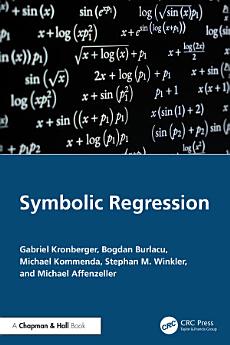Symbolic Regression
Par šo e-grāmatu
The basic idea of GP is to evolve a population of solution candidates in an iterative, generational manner, by repeated application of selection, crossover, mutation, and replacement, thus allowing the model structure, coefficients, and input variables to be searched simultaneously. Given that explainability and interpretability are key elements for integrating humans into the loop of learning in AI, increasing the capacity for data scientists to understand internal algorithmic processes and their resultant models has beneficial implications for the learning process as a whole.
This book represents a practical guide for industry professionals and students across a range of disciplines, particularly data science, engineering, and applied mathematics. Focused on state-of-the-art SR methods and providing ready-to-use recipes, this book is especially appealing to those working with empirical or semi-analytical models in science and engineering.
Par autoru
The authors are all affiliated with the University of Applied Sciences (UAS) Upper Austria.
Gabriel Kronberger is professor for data engineering and business intelligence. His research interests are symbolic regression and machine learning as well as probabilistic graphical models.
Bogdan Burlacu is a research assistant. His main focus is the study of genetic programming evolutionary dynamics in symbolic regression scenarios.
Michael Kommenda is a research assistant. He has been applying symbolic regression methods in various industrial projects and application scenarios.
Stephan M. Winkler is professor for medical and bioinformatics and head of the bioinformatics research group. His research interests despite bioinformatics include genetic programming, nonlinear model identification and machine learning.
Michael Affenzeller is professor for heuristic optimization and machine learning and head of the Heuristic and Evolutionary Algorithms Laboratory. Furthermore, he is the vice dean for research and overall head of the COMET project for heuristic optimization in production and logistics (HOPL).




